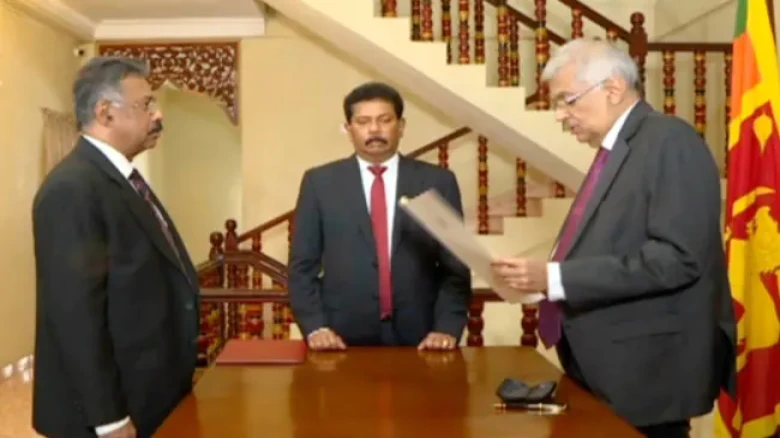He urged the parties for bipartisanship and stated that he was ready to begin the party consultation process on Thursday.
Digital Desk: Ranil Wickremesinghe took the oath as Sri Lanka's eighth president today. The veteran politician took the oath of office before Chief Justice Jayantha Jayasuriya on the premises of parliament. Within the day, he will appoint a new prime minister.
On Wednesday, MPs chose him to be Sri Lanka's new president. In the 225-member House, Wickremesinghe received 134 votes, while the leader of the opposition ruling party, Dullas Alahapperuma, received 82. Anura Kumara Dissanayake, the leader of the left-leaning Janatha Vimukthi Peramuna, received just three votes during the voting that took place in Parliament under heavy security.
Ranil Wickremesinghe praised Parliament for respecting democratic principles in his victory address and pleaded for help from his opponents for the presidency, as well as former leaders Mahinda Rajapaksa and Maithripala Sirisena. He also requested the support of Tamil leaders.
"I don't need to tell you how difficult things are in the country right now. Young people and the economy both call for change. The world is filled with issues. We must proceed without being involved, "he said.
All parties involved, according to Wickremesinghe, must come together to "create a new programme."
People want the parliament to work together, not the same old politics, he added.
He urged the parties for bipartisanship and stated that he was ready to begin the party consultation process on Thursday.
"I have spent 45 years working for this Parliament. The Parliament is my life. I appreciate the honour that the parliament has bestowed upon me "said Wickremesinghe.
Wickremesinghe is the first president of Sri Lanka to be chosen by Parliament in accordance with the Constitution; he took over as Acting President after former President Gotabaya Rajapaksa resigned and fled the country.
Wickremesinghe will be given the power to complete Rajapaksa's remaining term, which expires in November 2024.
The 22 million people of Sri Lanka, who have been enduring lengthy lines, deteriorating shortages, and power outages, require around USD 5 billion in basic essentials over the next six months, according to Wickremesinghe, who has served in parliament for nearly 50 years.

Leave A Comment